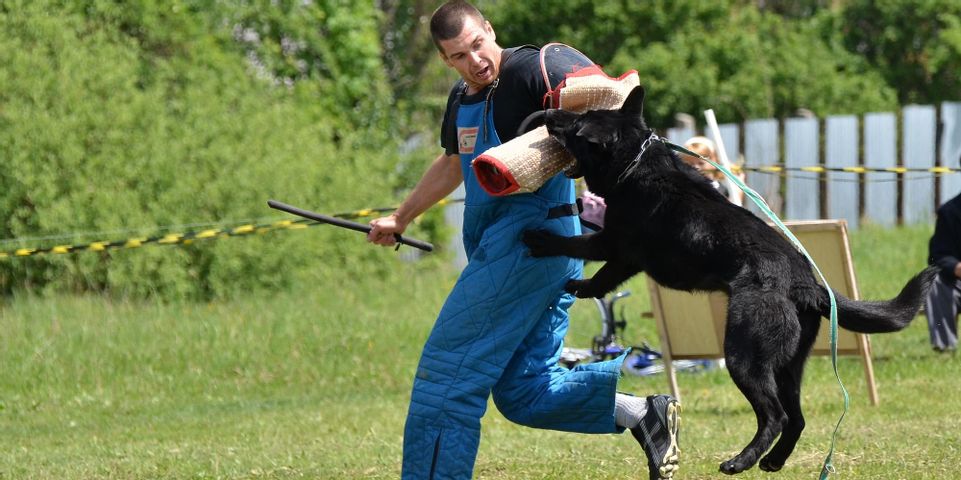
IGP is an acronym short for the German phrase, “Internationale Gebrauchshund Pruefung,” which means Dog Sport.
Basically, as dog owners know it today, IGP is great exercise, lots of fun and full of rewards for dogs (and their owners). Certainly IGP is used to train working dogs as well, for example, police training, border patrol, customs, military and herding. That said, more and more dogs (and their owners) use IGP as-a-kind-of-sport training in three key areas:
- TRACKING –generally dogs learn to follow scents and footsteps over mixed terrain—even when there’s a change direction.The goal for training the dog is to help your dog learn to stay on track, find dropped articles and signal to their owners the location of what/who is sought. Bad weather conditions, non-ideal circumstances and scent distractions are just some of the interference dogs are trained to overcome, and most owners (and their dogs) find tracking to be the most satisfying experience in training because they get to work together!
- OBEDIENCE – Commands like sit, down and stand are taught, except when the dog is moving. Dog experts, like Beach City Dogs, handle the dogs in large wide open space. Some exercises include dumbbell retrieval, a one meter jump and a six foot "A"-Frame. Down commands and a long send aways are also great tests.
- PROTECTION – this is self-explanatory. Training dogs to protect their owners and families is an often missed opportunity. During this kind of training the relationship between dog and handler is key. When the handler says “stop biting” good training teaches your dog to obey the command of the handler and guard the helper. Unlike police dog training, IGP--at places like Beach City Dogs--is personal protection work. In short, your dog will be able to cease aggression and learn to use it ONLY under specific situation he/she is trained to face, and always under the total control of the handler.
About the Business
BUSINESS
Pet Boarding Service
Beach City Dogs
321 Wilshire Rd, Section A, Oceanside, CA 92057-2902
Have a question? Ask the experts!
Send your question

